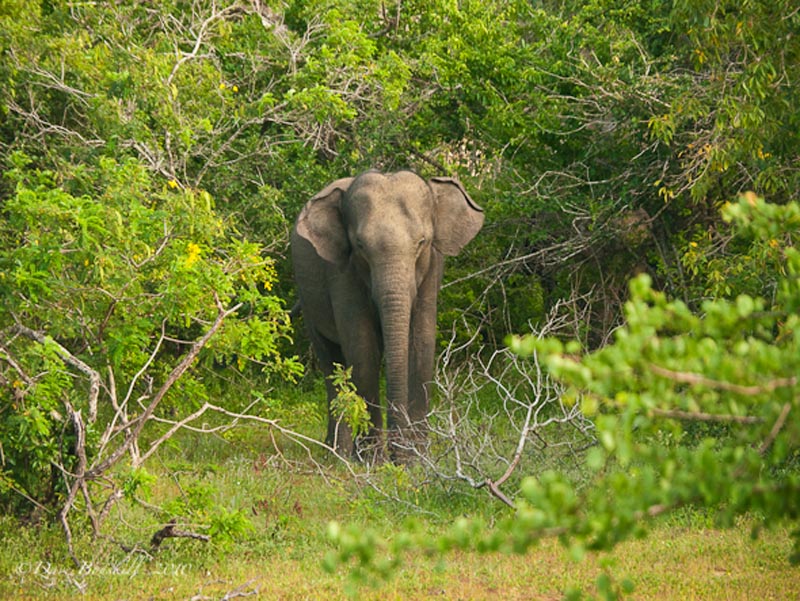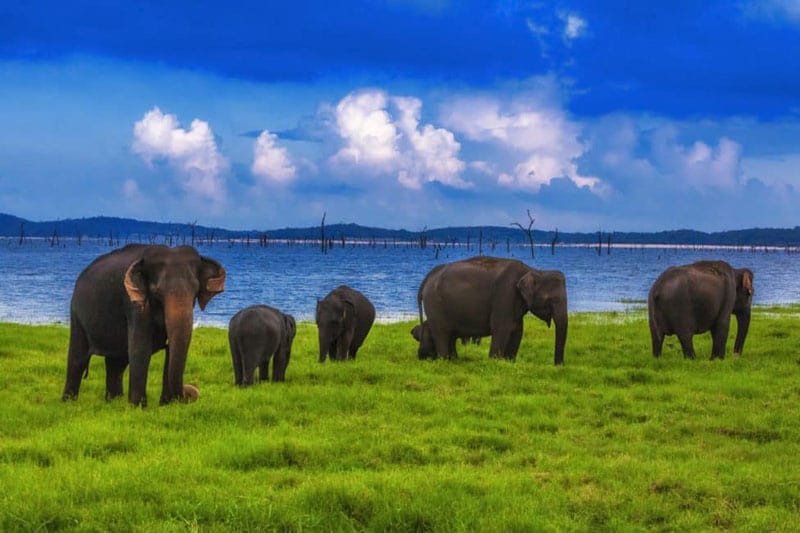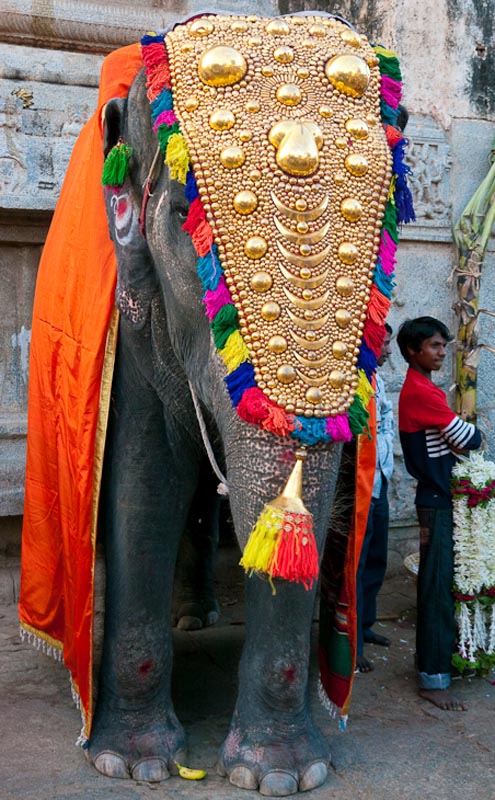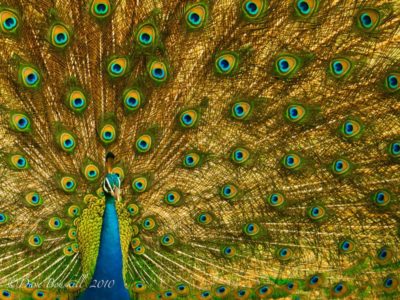The Human Elephant Conflict is a term that defines a growing problem in Asia between humans living among elephants. There is a very real problem in Asia. Elephants and Humans are having a hard time cohabitating together.
Habitat is shrinking daily and humans are encroaching on the territory of elephants. At the same time, many poor farmers haven’t changed their daily lives for hundreds of years but their crops and villages are being threatened.
Table of Contents
The Human Elephant Conflict
As urbanization takes hold, the elephants have nowhere else to go and end up in fields searching for food. Elephants and humans are not getting along and in Sri Lanka, it is more apparent than anywhere else.
Elephants Are Considered Pests in Asia

In villages, elephants are considered pests. Very big and dangerous pests. They raid crops and devastate and entire year’s harvest. Like any wild animal that is losing its habitat, elephants are becoming more aggressive and people are losing their lives. Read: The Best Travel Charities
People are Killed By Elephants every year
Each year in Sri Lanka 50 people are killed by elephants and in India that has a billion + more people than Sri Lanka, 150 – 200 people are killed by elephants each year.
Because of these statistics Sri Lankans are mobilizing and fighting back. Elephants are being shot, poisoned and electrocuted.
As many as 100 – 150 elephants are being killed each year and it doesn’t seem as if anyone can come to a solution.
Some statistics have stated that over 200 elephants were killed in Sri Lanka in 2009.
These numbers of Elephant deaths is heartbreaking.

The elephant is endangered and it is illegal to kill them, but villagers are desperate.
Sadly elephants are dying in other ways as well, they are being hit by trains, falling into wells, blown up with explosives and have become casualties of years of conflict.
Baby elephants are orphaned and many adult elephants are left maimed and suffering.
Places like the Elephant Transit Home in Uda Walawe National Park are working to rehabilitate elephants that are orphaned or injured, but even they can’t seem to solve the problem that the elephants face.
Once they are rehabilitated and released back into the wild they wander back into villages only to be shot or poisoned.
The Elephant Transit Home keeps human contact to a minimum to make sure that the elephants do not become accustomed to man, but with loss of habitat and very little room to roam, the elephants are running out of safe space.
Can Humans and Elephants Co-Exist?

It is beginning to look as if humans and elephants cannot co-exist and sadly places like the Pinnawala Elephant Orphanage may be the way of the future.
Where the Elephant Transfer Home works to rehabilitate elephants and release elephants back into the wild, the Pinnawala Orphanage but does not release them back into the wild. They are more like a comfortable zoo.
At Pinnawala, elephants have regular human contact and tourists frequent the orphanage to watch the baby elephants being bottle fed.
While the wild elephant population is dwindling, the Pinnawala Elephant Orphanage is actually breeding elephants to be transferred to other zoos and sanctuaries.
It is difficult to say which way is right.
What is the Future for Elephants?
I have no idea what the future holds for the Asian elephant. As the human population rises steadily, there is becoming less and less room for all wildlife in general.
As we are only a travel blog, we do not have the answers, but we can raise the question and get the word out that something needs to be done if we are going to save the wild elephant herds of Asia.
It is places like the Elephant Transit Home and Born Free Foundations that are leading a way in conservation. With more funding and awareness about these organizations maybe we can help to make a difference.
Read more about responsible tourism:




Yes, there is an answer. proper planning and implementation of the plan is the solution. People cannot live and work with wild life. these two should be separated by establishing proper human settlements and protected areas that cannot trespass. Unplanned settlements with farming should removed and provide the people with proper houses with appropriate infrastructure facilities. We need to look at the problem with modern world perspective. Yes the policy and plans should be prepared with real participation of victims rather than advocates of animal rights against poor communities and their livelihoods. Innocent people become murders as our low makers and, scientists, officers, media and public preachers fight for habitat conservation with out imagination of the situation of poor segment of the rural population forced to forest due to bad settlement planning during last 70 years.
http://calltoshareandcare.org/
This is an Organization working towards betterment of human elephant conflict. please support this…
It is very sad to see this. Hopefully, something will be done about this before it is too late.
I hear that they are using elephant dung to make paper now. There may be some economic value in this.
.-= Joseph Condron´s last blog ..Elephants- PTSD And Killing People =-.
yes, we saw an elephant dung paper shop in Thailand years ago. It is a sad situation all around. For elephants and the people. I just don’t know how the planet is going to survive. Human sprawl and development is wreaking havoc on nature.
I have to help. But how? Any ideas?
Hey Carolyn, where can I find the book that you reccomended?
How can the Sri Lankan people do that? It is illegal!! I can’t b elieve them. How can they be so mean? Yes I know there is a shortage of food, but I would definetly die for a few elephants! As long as they are safe.
It is a difficult balance. The people are farmers that have to watch out for their families. Elephants run through small remote villages and kill people sometimes. For us, it is hard to understand, but for them it is a threat to their livelihood and lives. That is why people like Born Free are trying to figure out a balance for the crisis. There needs to be conservation areas big enough to give the elephants enough area to roam and in a small country like Sri Lanka, at is difficult.
I don’t think Sri Lankan people just kill elephants like many countries kill cows and pigs purely for their flesh. When it’s life threatening, first instinct would be to save themselves and dependents. Sri Lankan people do a lot for elephant well-being. It’s best to know what’s going on and help the situation. You can help by adopting an elephant through PAWS or Elephant Orphanage in Sri Lanka. I sincerely hope you will walk the talk!
Exactly Jay. that is the point of this article. Elephants are losing their habitat and they are dangerous to humans because of that. They are wandering into villages because they have very little roaming room left. I would prefer to give to the ETH over the Elephant Orphanage because the ETH is looking for solutions and is not breeding more elephants like the orphanage is. Simply rounding elephants up into a zoo like atmosphere is something that we dont’ see as a solution. I don’t know about PAWS so I will definitely check it out. Thanks.
That is awful. I wish I could do something to help.
You can check out the Born Free Foundation and the Elephant Transit Home, the links are in this post. They are working to create sustainable means of preserving the elephants habitat while empowering the people. Maybe you can volunteer with them somewhere. Or donate.
What a coincidence. I stumbled across this article just after reading “Elephants on the Edge” by Gay Bradshaw. Anyone who is interested in the survival of Elephants will get a lot of information from this deeply researched book. Did you know that elephants suffer from post traumatic stress after witnessing the massacre of their families by poachers and culling. Did you know that they go into deep depression after being separated from family and friends when zoos and circus’s trade them around. Did you know that severe cruel punishment is the norm for training them to perform. Did you know that their aberrant behaviour reflects the same behaviour that humans have after the same suffering of violent death of family and community, breakdown of society, loss of culture, and loss of elder mentors in their family. Did you know there are some wonderful sanctuaries where they can live a normal elephant life. I didn’t know any of this until I read the book.
Carolyn, thank you for sharing these facts. It is so sad what the elephant has to endure. As Ian Redmond said, it is a miserable existence being revered. Yes, they have very deep feelings and are very intelligent. Hopefully humans and elephants will be able to co-exist one day.
Hey Guys, yes it is very sad. When I was living in Sri Lanka we worked with a group that did work on Human Elephant conflict, especially regarding land. During the war the elephants would get scared by the bombings and go on rampaged through villages. Also villagers who fled due to the bombing would return to destroyed homes as the elephants came to each their food stores while they were gone. There is some hope with large nature preserves, so hopefully they won’t all be cooped up in small orphanages.
.-= Todd´s last blog ..Experiencing Sri Lanka’s Providence- Part 4- Colombo’s Eccentric Gangaramaya and Peaceful Seema Malaka Buddhist Temples =-.
This is really sad. Great post, thanks for blogging about it!
.-= soultravelers3´s last blog ..Yuck! Smoking in Europe =-.
Elephants are such beautiful, intelligent and emotional animals it’s very sad that they get such a raw deal. Thanks for highlighting the situation in the post.
.-= Becky Padmore´s last blog ..Five awesome water destinations in Canada =-.
How very sad! I love that you guys are shining a spotlight on this topic – I would bet that a lot of people are unaware of this terrible situation. My heart just breaks for both the villagers and the elephants, but this sad trend will only continue in many countries because our global population growth is out of control….humans will increasingly come into conflict with both animals and resources. Awareness is key to finding solutions, but I really think that awareness needs to extend beyond just situations to include the causes behind them.
.-= Trisha´s last blog ..Travel Writers- Are You Service Minded =-.
Thanks so much for bringing this important issue to the forefront guys. These amazing creatures deserve our respect ad protection.
.-= Alison´s last blog ..When English Rules Flashback =-.